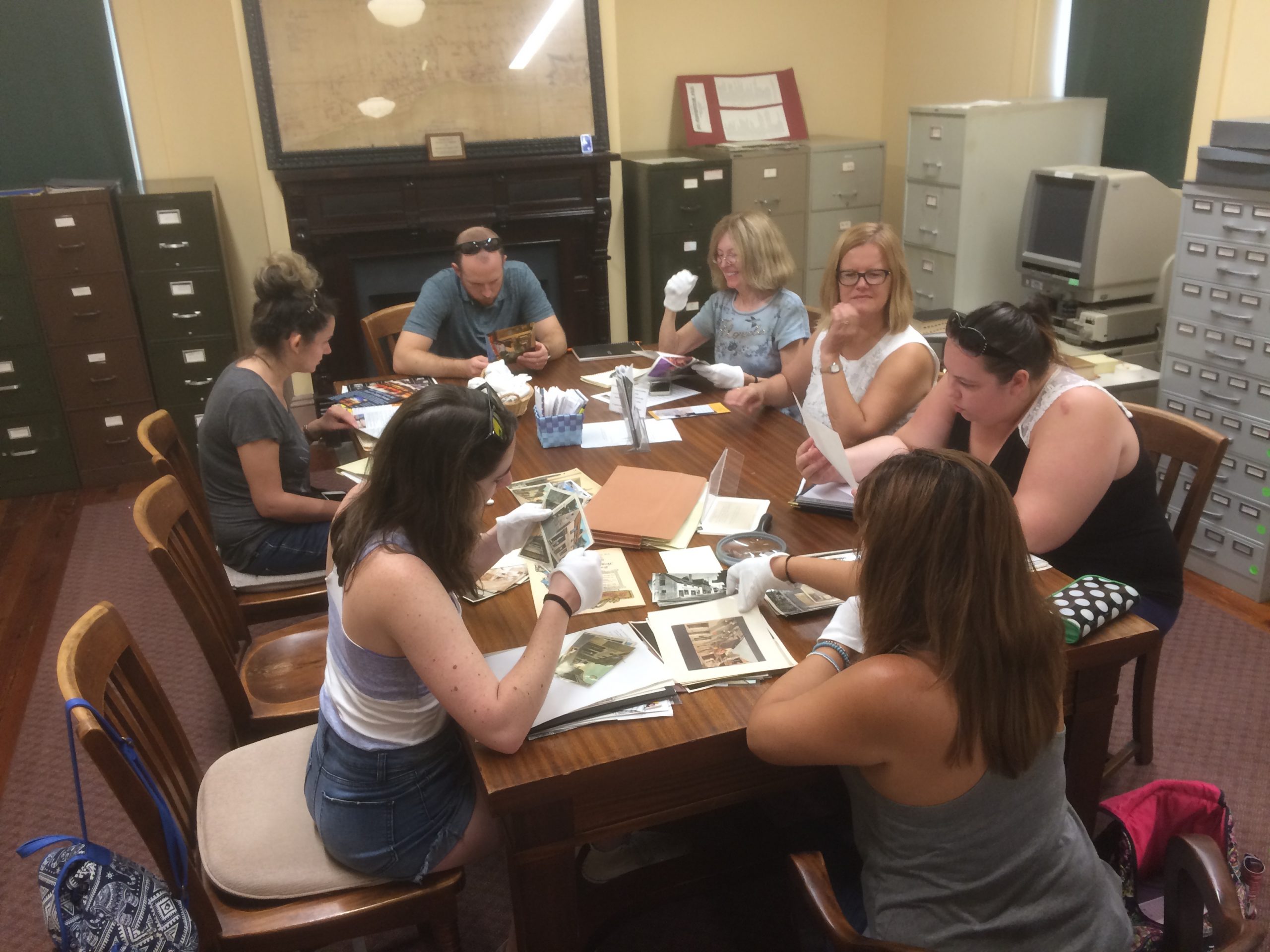
Courses
Below are the current course offerings from the Historic Preservation Program.
Summer 2024 Offerings
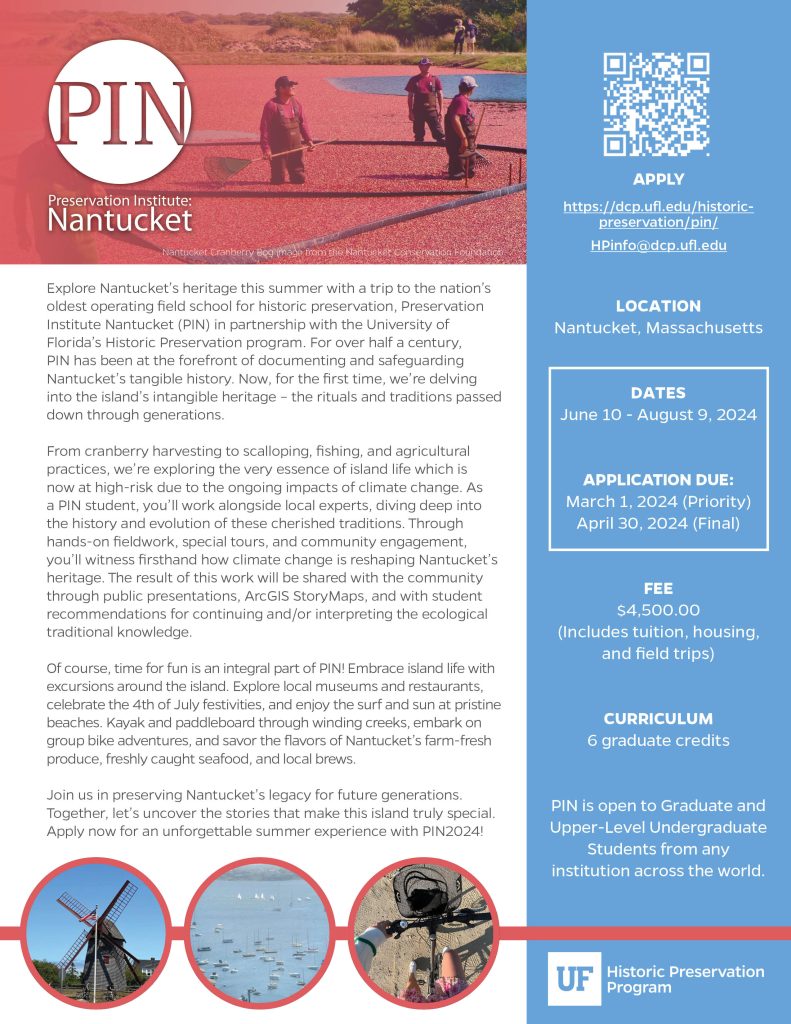

Fall 2024 Offerings
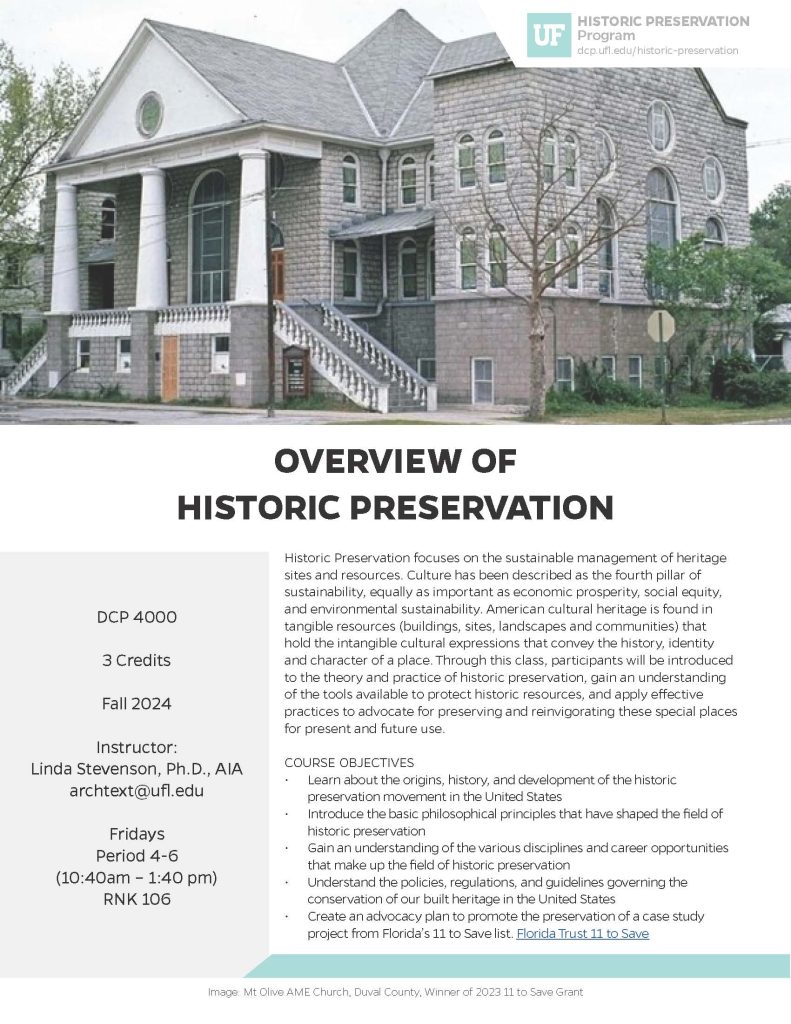

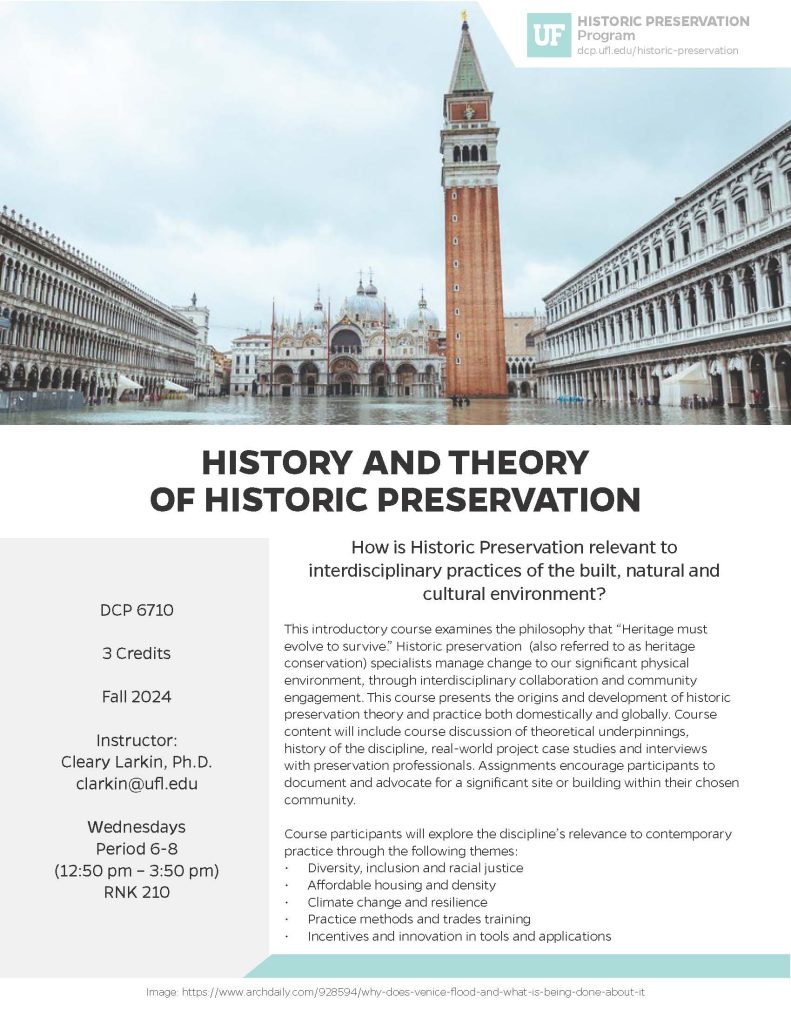
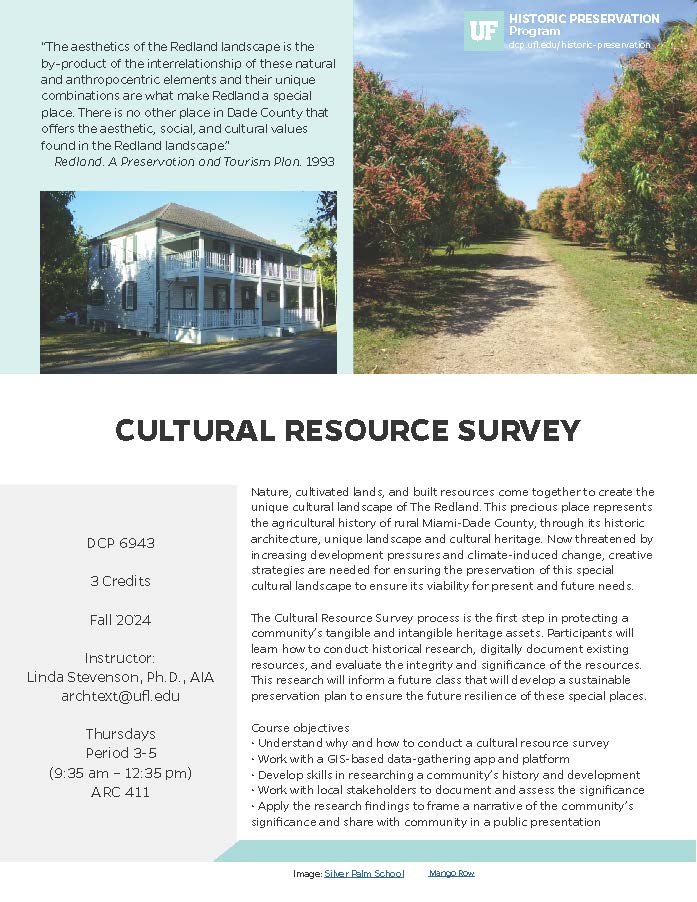
- DCP 4000: Overview of Historic Preservation
- DCP 6710: History & Theory of Historic Preservation
- DCP 6711: Built Heritage: History and Materials Conservation
- DCP 6716: Cultural Resource Management
- DCP 6943: Cultural Resource Survey
- DCP 6931: Special Topics
- Preservation Institute Nantucket
(3.0 credits)
Fall Semester
Instructor: Linda Stevenson, Ph.D.
Description:
Overview of historic preservation and its relationship to historic communities. The course covers terminology, theory, legal, design, social issues and community assessments.
Prereq: junior standing or higher.
(3.0 credits)
Fall Semester
Instructor: Cleary Larkin, Ph.D.
Description:
National, state, and local historic preservation policies and programs are explored. Theoretical concepts that shape the way we view, protect, and preserve historic interiors, structures, sites, districts, and landscapes.
(3.0 credits)
Fall Semester
Instructor: Linda Stevenson, Ph.D.
Description:
Historical developments in American cultural heritage through the study of buildings, sites, and figures.
(3.0 credits)
Spring Semester
Instructor: Cleary Larkin, Ph.D. or Linda Stevenson, Ph.D.
Description:
This project-based course introduces multidisciplinary approaches for the identification, documentation, preservation, and interpretation of significant heritage sites including the preparation of a Historic Structure Report.
Prereq: None.
(3.0 credits)
Spring Semester
Instructor: Linda Stevenson, Ph.D.
Description:
This course focuses on the inventory and assessment of a historic community and its built and intangible heritage using current policies and best practices for cultural resource surveys.
(3.0 credits)
Fall and Spring Semester
Instructor: Clarissa Carr, Ph.D.
Description:
Rotating topics include Heritage Design Communications and Interpretive and Graphic Design for Heritage Sites
DCP 6701 World Heritage Research and Stewardship
DCP 6718 Current Topics in Historic Preservation
These courses must be taken together and are only offered at the Summer B Preservation Institute Nantucket. 6.0 credits
Instructor: Cleary Larkin, Ph.D.
Description:
Officially founded in 1972, PIN is America’s oldest, continually operating applied learning and research program (“field school”) for historic preservation. The mission of PIN is to help prepare the next generation of historic preservation leaders while documenting, researching, and conserving the Island community’s cultural resources. The summer program introduces students to the historic coastal community of Nantucket, designated a U.S. National Historic Landmark District in 1966 based primarily on its leading role in the global whaling industry from the late 18th through mid-19th centuries. Projects change every summer but recent projects have included documentation and assessment of cultural and historical resources and landscapes, assessment of historic materials conditions, vulnerability assessment of cultural heritage and landscapes, exploration of strategies for adaptation and mitigation of the island’s built heritage to enhance resilience. Students will have opportunities to learn from multi-disciplinary practitioners and subject matter experts, as well as work with local policy, governmental, advocacy, arts and conservation organizations. PIN’s legacy acknowledges multi-disciplinary scholarship as central to the discipline of Historic Preservation.
Objectives:
- Gain an understanding of the history and current condition of the island and Town of Nantucket;
- Explore the impacts of population, tourism, sea level rise, and climate change on heritage resources;
- Examine policies governing the management of heritage resources and historic coastal communities being impacted by sea level rise and climate change;
- Learn and employ best practices for undertaking an integrated approach to cultural resource surveys, conditions assessments, and vulnerability assessments;
- Establish a preservation approach that considers policy, design, conservation, education and interpretation as solutions for a resilient future.
- Consider and implement strategies for engaging stakeholders and the community of Nantucket through written, graphic and oral presentation skills.